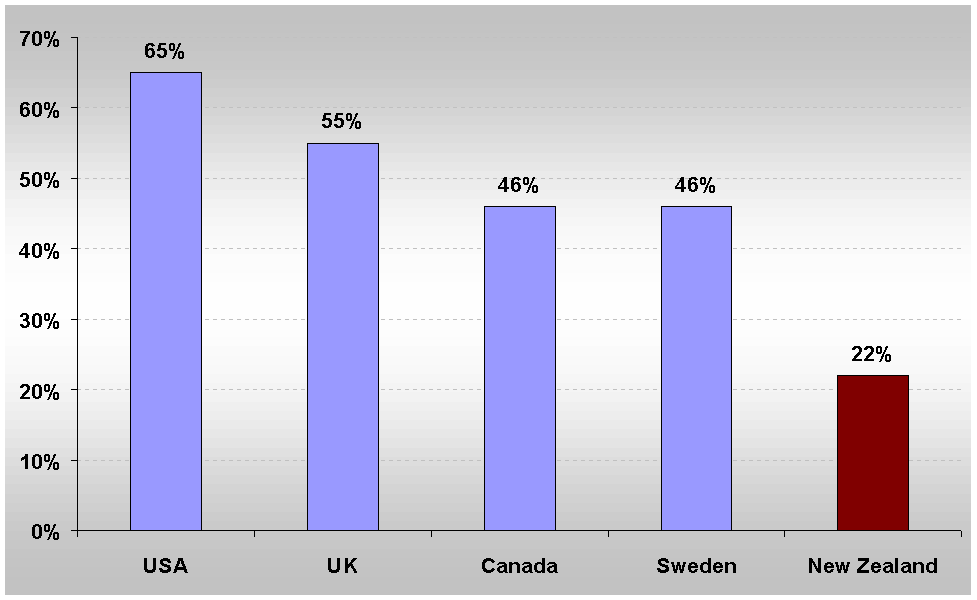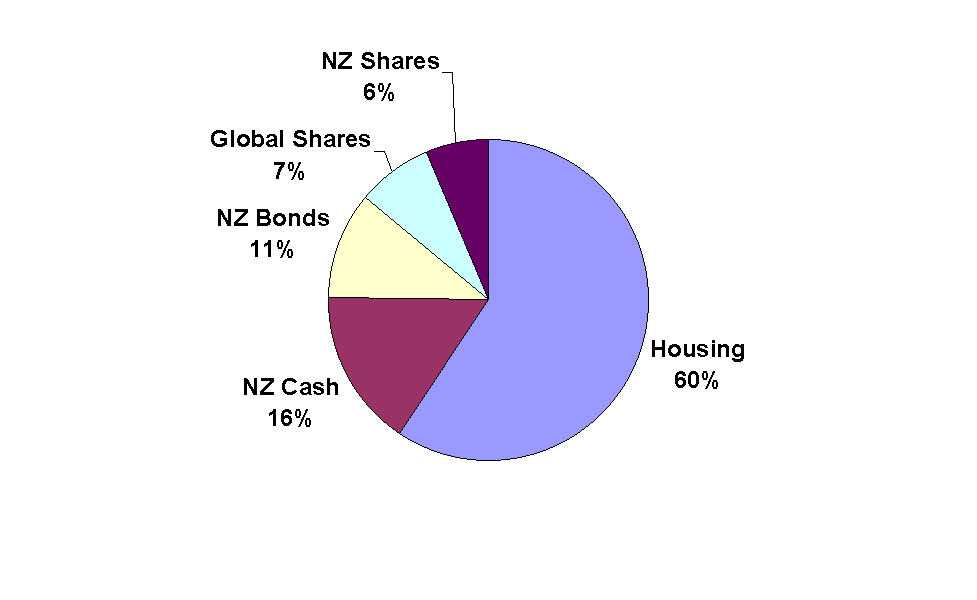The need for diversification is greater in times of turbulence
The world is revolutionising before our eyes - and so should investment portfolios.
Monday, December 4th 2000, 9:33AM
by Cameron Watson
The world is revolutionising before our eyes. It is a wonderful, exciting world to live in but requires us to face up to momentous decisions with startling regularity. Traditionally in New Zealand, primary industries like farming and forestry along with investments in property have been the cornerstone of our wealth. Perhaps we have clung on to these practices for too long.
Property and primary industry retain an important place in the economy and in investment portfolios, but a great deal of the world’s wealth today is being created not by "hard" assets but by businesses who harness knowledge, creativity and technology that allows other businesses to improve their productivity and profitability. New Zealand has largely missed out on this shift in wealth because we have steadfastly clung to our traditional modus operandi and failed to realign our investment capital from high cost, low return assets to high margin, high return businesses.
We must adapt to a changing world. A ‘conservative’ approach based on old ideas is today outdated and may prove to be more wealth depletive as time goes on. A ‘progressive’ approach that balances risk with the need to change, improve and move with the times is the most prudent way to approach investment these days.
Percentage of Net Wealth (after Debt) in Financial Assets
i.e: Non-Property assets

Source: RBNZ Bulletin Vol 63, No 2 Trends in household assets and liabilities since 1978, Clive Thorp and Bun Ung. June 2000
The ‘buy and hold’ axiom (which we generally espouse) requires modification; blue chip companies do not necessarily remain blue chip forever. Investors should intend to hold for the long term but should be willing to make a hard decision if the fundamental, long-term outlook for the company (not the share price) takes a turn for the worse. Hanging on grimly to old ideas can be costly.
New Zealanders have a relatively high proportion of our wealth tied up in property and a very low proportion of our net wealth in financial assets compared to North Americans, The British and Europeans. There are some explanations for this. Americans are able to borrow against shares and hence they have a higher inclination to invest in this sector. New Zealanders like to own their own home, which is a sensible and understandable course of action. However, leveraging into rental properties may have had its day and it may be time to consider other alternatives. Investing in shares is not the gambling game it is sometimes made out to be. Many New Zealanders have invested in shares as a long-term investment for many years, it is perhaps time more of us allocated some of our retirement savings to this sector.
Where New Zealanders Have Their Money Invested
Includes the Family Home and is Gross of Debt

Source: RBNZ Bulletin Vol 63, No 2 Trends in household assets and liabilities since 1978, Clive Thorp and Bun Ung. June 2000.
There are many companies that have made their shareholders very, very rich over the last five to 10 years. An investment of US$1000 made ten years ago in Nokia, the wireless communications giant, is now worth in excess of US$500,000. There are many other examples including Microsoft, Cisco Systems, Berkshire Hathaway, Oracle or our very own Baycorp that have provided similar returns.
Even over the past year some investors have doubled or tripled their money in various companies and funds. The Finsbury Worldwide Pharmaceutical Trust has gained 304% over the 12 months to the end of September. Henderson Technology investment trust is up 166% over the same period. The TR European Investment Trust has also doubled in value over the past 12 months. All these returns are in NZ dollars - the fall in which has helped bump up these numbers.
It is not one way traffic however. Nortel Networks, a major North American technology company, recently dropped 30% in one day after it announced weaker than expected earnings. New Zealand has not avoided the rough ride this year. The Telecom share price is down over 40% since March as overseas investors exited their New Zealand investments. While those people who punted on dot-com shares are mostly down by anywhere from 50% to 80%.
These contrasting stories highlight the importance of diversification and underline the fact that the best investment of all is unquestionably a balanced portfolio.
Investing prudently is all about minimising risks and maximising opportunities. A measured approach is very often the only sensible way of doing this. Too often people rush into - or out of - investments without consideration for the risks involved.
Developing a balanced portfolio strategy recognises that luck plays a significant hand in investing. How much of our investment success is due to luck is impossible to measure – sometimes it helps you out, and sometimes it frustrates even the best laid plans. Another word for luck is risk – investment is all about managing risk.
Extremism in investment, as in politics, is dangerous.
Some people dismiss balanced portfolios as outdated. You often find these same people promoting a far more aggressive approach such as investing all of your savings into three or four companies and nothing else.
Investing in such a gung-ho fashion is very dangerous and can easily result in disaster. Many who advocate such high-risk strategies usually do so only after they have a good proportion of their own nest egg tucked away in the bank. They may take a high-risk approach, but probably only with the money they can afford to lose. Unfortunately, those who get tempted into high-risk investments and strategies are all too often those who can least afford to. It doesn’t matter who you are – risk matters.
Ensuring you have a balance between the main investment assets namely shares, property as well as fixed income is the best approach. How you split your savings between low risk (fixed income) and higher risk (shares and property) investments comes down to your situation and ability to absorb risk. The table below illustrates the potential returns and risks from various asset allocations. The figures are based on American returns over the past 60 years. For simplicity only shares and fixed income have been combined. Note, these calculations are not guaranteed, there is no rule anywhere which says that the next 60 years have to behave like the last 60.
Asset Allocations, Risk Return Profiles

The equity figures are based on historic returns from the MSCI World Sharemarket Index since 1980 and the US S&P 500 Index since 1940. The fixed income returns are based on historic yields on NZ 90 day bank bills since 1988, US 30 year government bond yields since 1980 and US Treasury Bills since 1970.
Cameron Watson is the research manager with Craig and Co
Cameron Watson is the research manager at Craig and Co.
| « Alliance Capital joins with AXA Asia-Pacific | King builds an empire » |
Special Offers
Commenting is closed
| Printable version | Email to a friend |









